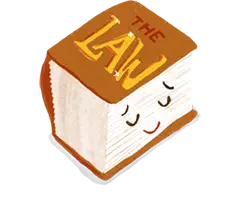Topic
Money and consumer rights
This page contains different parts of laws about Money and consumer rights.

Important laws about Money and consumer rights
Court Martial Act 2007
When Court Martial Judges have to retire because of their age
19: Age of retirement
Weights and Measures Act 1987
This law's name and when it started working
1: Short Title and commencement
Weights and Measures Act 1987
Explaining important words and ideas in the Weights and Measures Act
2: Interpretation
Weights and Measures Act 1987
This law applies to everyone, including the government
3: Act to bind the Crown
Weights and Measures Act 1987
New Zealand uses metric units like kilograms and metres for measuring things
4: Metric standards of weights and measures
Weights and Measures Act 1987
Rules for keeping and marking official weights and measures
6: Reference standards
Weights and Measures Act 1987
Inspectors get special measuring tools to check if things are the right size or weight
7: Inspectors' working standards
Weights and Measures Act 1987
Rules about using metric measurements for buying, selling, and making agreements
8: Obligations to use metric system of weights and measures
Weights and Measures Act 1987
You must use metric units when selling things in New Zealand
10: Obligation to use metric system in advertising goods for sale
Weights and Measures Act 1987
When you don't need to use metric measurements in ads for selling things
11: Exceptions to obligation to use metric weights and measures in advertising goods for sale
Weights and Measures Act 1987
Sellers must tell you how much of a product you're actually getting
12: Obligation to sell goods by net weight or measure
Weights and Measures Act 1987
Seller must give you a note with details when delivering goods sold by weight or measure
13: Obligation in respect of invoice or delivery note
More laws about Money and consumer rights
About this project
What is this project?
This project is an experiment to take difficult language, and make it easier to read and understand for everyone.
How do we do this?
What's our process for taking the law and turning it into plain language?
Why is the law written like it is?
Laws are often hard to read. They use a lot of words and language we don't usually use when we talk.
Should we use AI for this?
What are the good and bad sides of using AI?
Is this information the actual law?
We hope that this information will help people understand New Zealand laws. But we think that it's important you talk to someone who understands the law well if you have questions or are worried about something.
You can talk to Community Law or Citizen's Advice Bureau about your rights.
Remember that AI can make mistakes, and just reading the law isn't enough to understand how it could be used in court.
You can talk to Community Law or Citizen's Advice Bureau about your rights.
Remember that AI can make mistakes, and just reading the law isn't enough to understand how it could be used in court.




